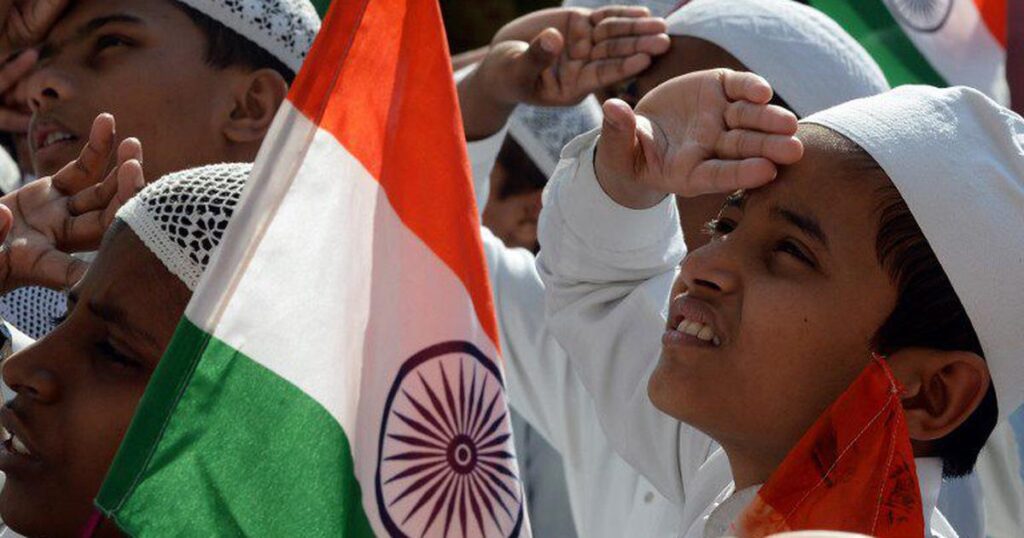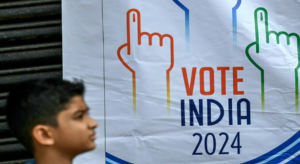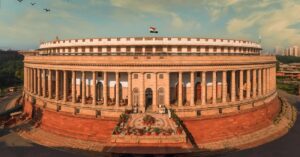Whither India? This is a question the world is asking with concern. On the eve of India’s 73rd Republic Day, we also need to ask ourselves where we are going.
This is a question Jawaharlal Nehru asked nearly 90 years ago. Freedom from British colonialism was still not on the horizon, yet there were debates about what this freedom was and how it would be realised. In a famous pamphlet published in 1933 titled Wither India, the man who would become India’s first prime minister tried to ask some of these questions.
“What then are we driving at? Freedom? Swaraj? Independence? … Words which may mean much or little or nothing at all. Again, whose freedom are we particularly striving for? For nationalism covers many sins and includes many conflicting elements. There is the feudal India of princes, the India of zamindars, big and small, of farmers and of workers and the middle class; A more vital conflict of interest arises between these possessing classes as a whole and others; between the ‘haves’ and ‘have-nots.’”
When we read Nehru, it is clear that he is mainly dealing with the economic question. But human beings are not merely economic animals. The affective aspect of freedom is driven by the quest for a good life. Nehru says that freedom is essential for a good life, which means national freedom as far as the nation is concerned and personal freedom as far as the individual is concerned.
Looking at the debates the great minds of the country were having, the idea of the freedom of the individual is central to the imagination of national freedom. Who is an individual? Can everyone claim individuality? For this, each one of us needs to have a feeling of equality and a sense of an autonomous self who can take decisions and also has the freedom to act according to it.
In a caste-ridden, unequal society like India, attaining individuality was in itself a tough battle. It was fighting with those who belonged to the same nation but did not really belong to one another. Without this self, how could anyone say that they belonged to either a nation or a people?
Yet, it was for India that people were being asked to sacrifice themselves. Which India?
Ellen Horup, a Danish journalist, peace activist and a friend of Mohandas Gandhi, said it was her folly to think that after meeting him that she had understood India completely. After spending some time in India, she had realised that India was much more than Gandhi. He was, after all, male and that too a Hindu male. To know and understand India, she needed to move beyond him.
India consists of identities more varied and often in conflict with each other, hundreds of tongues and so many ethnicities. To create a nation out of this differentiated and unequal populace was an ambitious project. Yet, the founders of the nation accepted the challenge and embarked on an adventurous journey that India was supposed to be.
People had to be true to India, but India had also to be true to its individuals. Speaking to a group of ministers for the river valley projects, Nehru had said, “Once I was asked, ‘what is your principal problem? How many problems do you have?’ I said, ‘We have got 360 million problems in India.’”
That answer amused people, but it has an essential truth in it: that our problems have to be viewed from the point of view of the 360 million individuals, not some statistical mass. “…We must think in terms of individuals, individual happiness and individual misery,” Nehru said. We must think in terms of human beings and not abstractions or numbers.
Yet, 70 years after this appeal, a young man cried out in despair: “The value of a man was reduced to his immediate identity and nearest possibility. To a vote. To a number. To a thing. Never was a man treated as a mind. As a glorious thing made up of stardust. In every field, in studies, in streets, in politics, and in dying and living.”
Dalit PhD student Rohith Vemula could not bear being reduced to a number, a vote, his immediate identity. The refusal of society and the nation to recognise one as a unique individual and mind is the ultimate insult. It killed Vemula.
We did not realise that Vemula’s misery was accentuated in a space which was supposed to help him achieve and realise his self, his individuality. It was a failure of the institution of the university as well as that of the state. Modern states are supposed to talk to individuals.
In June 2014 in Pune, Mohsin Sheikh was reduced to the abstraction of his Muslimness and killed. He was not recognised as an individual and his religious identity became the cause of his death. It was said later that the individualities of Mohsin Sheikh or Mohammed Akhalq or Pehlu Khan or Junaid Khan and scores other lynching victims like them became collateral damage in the battle for the creation of a singular Indian identity.
Muslims are being told that for them to have the right to individuality, they must shed the narrow identity of Muslimness and acquire the larger identity of Indianness – which is being defined as Hinduness. Otherwise, they will be tied to their immediate identity and robbed of all individual rights.
This is what activist Sharjeel Imam, who has been arrested in the Delhi riots case, is told when his education and knowledge, which is normally considered a means to evolve as individuals, is allegedly a conspiracy to destroy the larger and only valid identity of Indianness.
When the Kashmiri journalist Sajad Gul is denied his liberty – an individual’s right – the justification put forward is that as an educated Muslim, he can be “dangerous” to the integrity of the nation.
An airhostess, a journalist, a research scholar, a radio presenter and an actor all rose on the first day of the new year to realise that their individual dignity had been destroyed as they were auctioned online as “Bulli bai”, a derogatory reference to a Muslim woman. They are all different individuals, realising the promise that the Indian Constitution made to them, and suddenly find themselves reduced to their Muslim identity.
The larger Indian identity, which was thought to be a liberating idea, has become a prison, a blade of the guillotine which chops off differences. This India tells Kerala to celebrate the deity Vamana and forget Mahabali, tells Bengal to leave Durga and Kali for Ram and Bajrangbali, tells the Miya poets to slash their tongues and speak in Assamese, asks officials in Madhya Pradesh to replace Urdu words with the pure Hindi words.
Whither India? India, which was an invitation to participate in an adventurous journey, is now threatened. We have lost our way. When on this Republic Day I watch the tricolour unfurl and the national anthem play, I will recall the words of my young friend, the journalist Alishan Jafri: “The national anthem always gave me goosebumps. But when I saw Faizan and his friends being murdered after the police forced them to sing the national anthem, I stopped getting those goosebumps. Every time, I hear the national anthem I am reminded of Faizan, his innocent blood, his shattered family and the murderers in uniform who continue to remain untouched by the law, perhaps testing my patriotism in a lock-up.”
How does this nation face the family of Faizan, who died after being assaulted by policemen as he sang the national anthem during the February 2020 Delhi riots? How can it convince Alishan Jafri that it deserves their love? how do we get back to the path our Constitution had opened for us? How can we do that without the moral compass of liberty, justice, equality and fraternity?
(Apoorvanand teaches Hindi at Delhi University. Courtesy: Scroll.in.)




